
The Popular Spotify Model: Principles and Practices
Spotify has introduced a renowned agile scaling model known as the “Spotify model.” In this article, we’ll explore its fundamental principles and understand its significance.
Apply Thoughtfully, Not Blindly
Henrik Kniberg and Anders Ivarsson unveiled the Spotify model in 2012, and since then, it has evolved to optimize organizational efficiency on an ongoing basis.
According to Henrik, in an interview with infoQ:
It wasn't a radical transformation, but rather a continuous flow of incremental process improvements. Over the last three months, our working methods have evolved.
While we will delve into the core principles, it’s crucial to remember that agility encourages adapting methods according to context. Blindly adhering to a methodology without considering its applicability is counterproductive.
Introducing the Squad (Spotify Model)
In the Spotify Model, squads consist of 5 to 7 engineers, led by one autonomous Product Owner, who operate like a startup. Typically, each squad is supported by an Agile Coach. You can think of a squad as akin to a feature team found in other methodologies. Ensuring each squad comprises multidisciplinary members is of paramount importance.
For devotees of Lean Startup, adding individuals to form fully autonomous squads is an option. However, it’s essential to note that a squad should not exceed 10 members. This customization isn’t part of the official Spotify model.
Each squad can opt for an agile methodology or an agile-related approach that best suits its requirements—whether it’s Scrum, Kanban, or Scrumban.
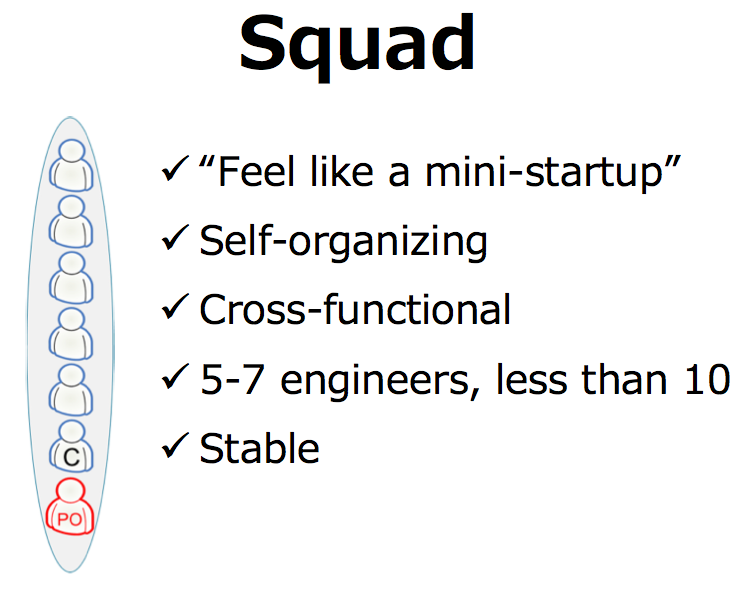
Regularly assessing the team’s health is vital for improving areas that are not operating optimally. Spotify advocates using the “Squad Health Check” model for this purpose.
Chapters in the Spotify Model
Within the same tribe (a concept we’ll discuss later), individuals possessing equivalent skills form a chapter. These chapters play a crucial role in aligning the vision of various squads.
Chapters convene for an hour each week to share their visions, promoting better overall consistency.
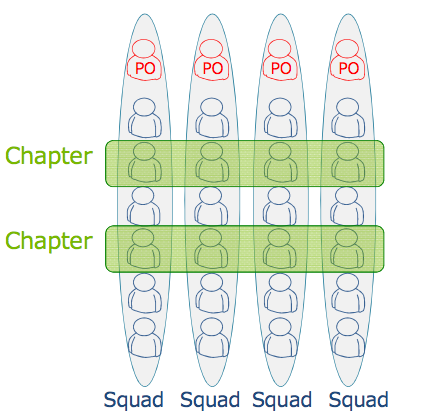
Tribes in the Spotify Model
Tribes represent groups of 5 to 8 squads collaborating on a shared overarching theme. To maintain a reasonable scale, it’s advisable to limit each squad within a tribe to a maximum of 80 individuals.
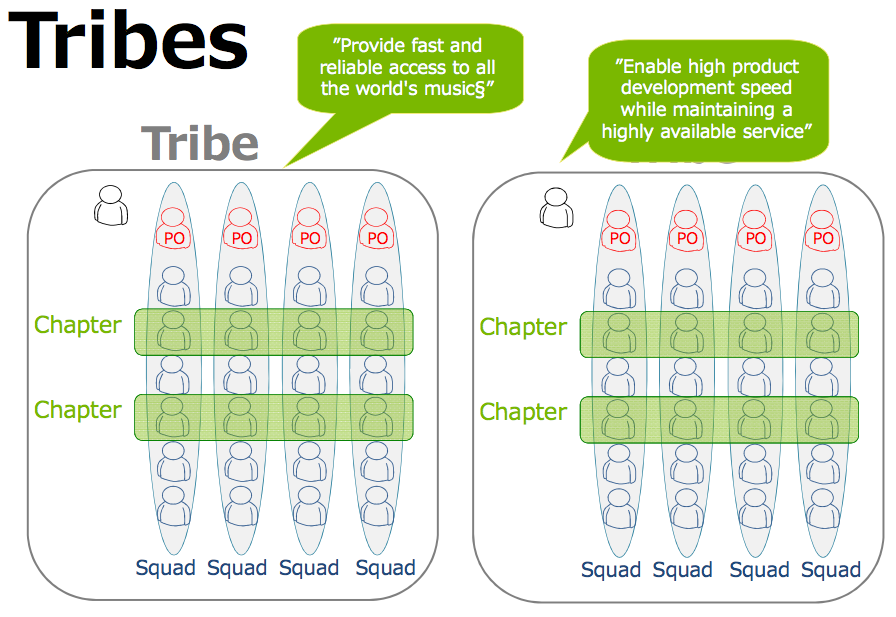
Guilds in the Spotify Model
Gathered from across the company, guilds comprise individuals with similar skills who regularly convene to share best practices, rules, and insights. Guilds contribute to creating a culture of shared understanding and alignment concerning projects, goals, and outcomes.
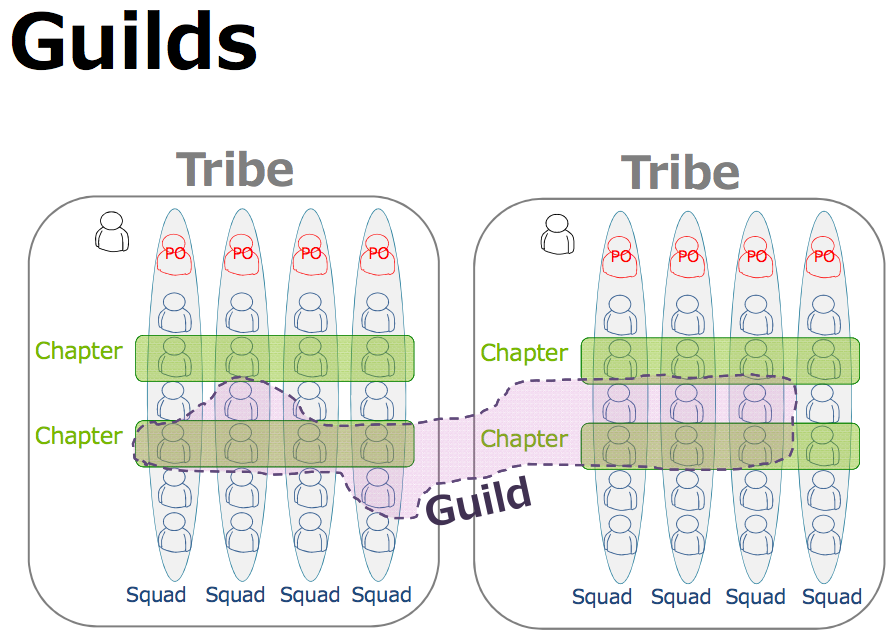
Spotify Model: Fostering Continuous Improvement
Spotify places a significant emphasis on continuous improvement within projects. This commitment is evident through the implementation of several practices:
- Training: Employing conventional training, brown bag sessions, and sharing workshops to educate teams.
- Questions & Answers: The CEO makes time for question-and-answer sessions.
- Hack Day or Hack Week: Scheduled sessions for developing innovative ideas that could enhance the company.
- 20% Time: Allocating 20% of each individual’s time to enhance the environment or explore new concepts.
- Public Post-Mortem: Convening to discuss an incident in detail, similar to the 5 Whys technique used to uncover root causes.
Conclusion: Embracing the Spotify Model
In conclusion, this article serves as a guide to understanding and implementing the Spotify model’s agile principles within your organization. While the Spotify model has evolved, evaluating the compatibility of each practice with your organization can help drive improvements.
Useful links:
SAFe vs Spotify
Le modèle Spotify (french)



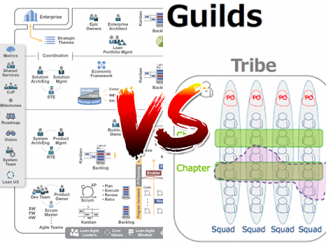
6 Trackbacks / Pingbacks